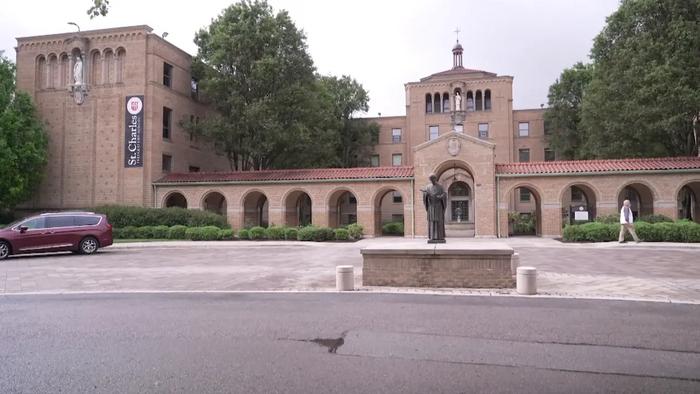COLUMBUS, Ohio – If someone collapsed after going into cardiac arrest, would you be prepared to help? For nearly half of Americans, the answer is no.

Credit: The Ohio State University Wexner Medical Center
COLUMBUS, Ohio – If someone collapsed after going into cardiac arrest, would you be prepared to help? For nearly half of Americans, the answer is no.
A new survey from The Ohio State University Wexner Medical Center finds many Americans are ill-prepared to help in emergency situations.
The national poll of 1,005 people found only 51% of Americans feel they would be able to perform hands-only CPR in an emergency. When it comes to serious bleeding, 49% said they could step in to help. And 56% of survey participants said they can stop choking.
“Before emergency responders arrive, it’s up to us as the public to initiate care,” said Nicholas Kman, MD, emergency medicine physician at Ohio State Wexner Medical Center and clinical professor of emergency medicine at The Ohio State University College of Medicine. “For every minute that passes, the chance of survival drops, and if they do survive, there’s less chance of a good neurologic outcome.”
Hands-only CPR
According to the American Heart Association, most people who go into cardiac arrest outside of the hospital are at a home or in a public area. Sixty to 80% of them die before reaching the hospital. Bystander CPR can double or triple survival rates.
“We would love the public to learn how to do hands-only CPR and practice the skill of doing CPR every six weeks,” Kman said. “Like with any skill, practice builds confidence. If we don’t practice it, we lose that skill.”
Stop serious bleeding
Accidents around the home with knives and saws, car crashes and other traumas can cause serious bleeding. STOP THE BLEED® training teaches people to how control bleeding until medical help arrives.
“Initiating hemorrhage control is something that you have to do very quickly,” Kman said. “We know from different studies that a patient with major bleeding can die in two to five minutes depending on the location of the bleed.”
Choking first aid
When food or an object is stuck in a person’s throat, it can block their ability to breathe, talk or cough. A choking person isn’t getting oxygen to their lungs, which can lead to brain damage. Performing abdominal thrusts or the Heimlich maneuver can force the item out of the body.
“Somebody who’s choking will eventually run out of oxygen, collapse and have a cardiac arrest,” Kman said.
Bystander preparation
Training in hands-only CPR, bleeding control and choking first aid is available in-person and online through many local organizations and employers. Certifications can be renewed every two years.
“We’re responsible for each other,” Kman said. “When you’re trained in these lifesaving skills, you’ll know how to recognize the signs that someone needs help and buy time until the responders can get there.”
Survey Methodology
This study was conducted on behalf of The Ohio State University Wexner Medical Center by SSRS on its Opinion Panel Omnibus platform. The SSRS Opinion Panel Omnibus is a national, twice-per-month, probability-based survey. Data collection was conducted from April 5-7, 2024 among a sample of 1,005 respondents. The survey was conducted via web (n=975) and telephone (n=30) and administered in English. The margin of error for total respondents is +/- 3.4 percentage points at the 95% confidence level. All SSRS Opinion Panel Omnibus data are weighted to represent the target population of U.S. adults ages 18 or older.




